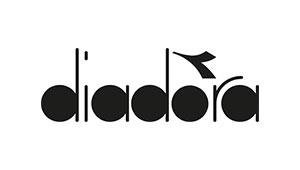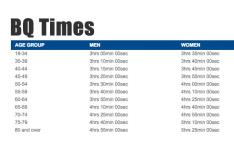
So, you want to run a marathon. Whether it's been on your bucket list for years or the idea just occurred to you last night, the prospect is an exciting one. Running 26.2 miles is a major accomplishment and crossing the finish line is one of the best feelings, but it might not be for everyone. Before you hit submit on that race registration form, ask yourself the following questions.
How long have you been running?
With the right training, almost anyone can run a marathon, but if you started running only in the last year or two, you may want to try some shorter races first. If you've been running for a while and have completed a double-digit race, a marathon just might be the next step.
What's your current mileage?
Most marathon training plans assume a base of at least 20 miles per week with an 8 to 10 mile long run on the weekend. With this mileage as your starting point, you should be able to comfortably begin a standard 12- to 16-week training plan. If your average is much lower than 20 miles per week, it's still possible to train for a marathon, but allow yourself a bit more time to train before race day, like a 20- to 24-week training plan to build up your base mileage.
Have you been injury-free recently?
Do you have any lingering aches and pains? Did you need to take time off for a major injury like a stress fracture? Ideally, you should be running injury-free for at least 3 months before embarking on marathon training. If you're not 100 percent, spend a few months rehabbing and strengthening any problem areas. If you have a history of being injury-prone, look into a plan that incorporates plenty of cross-training and keeps mileage levels moderate.
Do you have the right gear?
One of the great things about running is that the gear requirements are pretty minimal. With a decent pair of shoes (and a sports bra if necessary), you're ready to go. Of course, you can get by with the bare minimum when it comes to marathon training, but a few extra pieces will make it easier. In addition to running shoes, consider some weather-appropriate gear. If you'll be training throughout the winter, look for a wind-blocking jacket, long tights and waterproof gloves. If you'll be training in warm weather, a few shorts and T-shirts in a lightweight, wicking material will go a long way in keeping you comfortable. Many marathoners also enjoy using a GPS watch or phone app to track long runs and workouts. And if you'll be carrying your phone and/or fuel, consider gear with pockets or a hydration belt.
Will your lifestyle support training?
As you prepare to tackle months of training ahead, try to picture how you'll make it all work. Are you OK with waking up (and going to bed) early to complete long runs? Will you have a support network to keep you motivated when you want to bail on a run? If you're going through a particularly stressful time in your life (dealing with a big move or a sick relative, for example), it might be best to wait until things settle down. But if you can't stop thinking about that marathon finish line, it probably only means one thing—it's time to start training for 26.2!
READ THIS NEXT: 9 Ways Running a Marathon Will Change Your Life
Get ACTIVE on the Go


Couch to 5K®
The best way to get new runners off the couch and across the finish line of their first 5K.
Available for iOS | Android







Discuss This Article